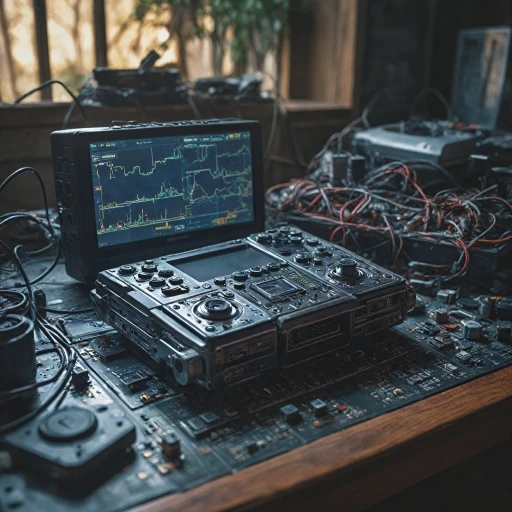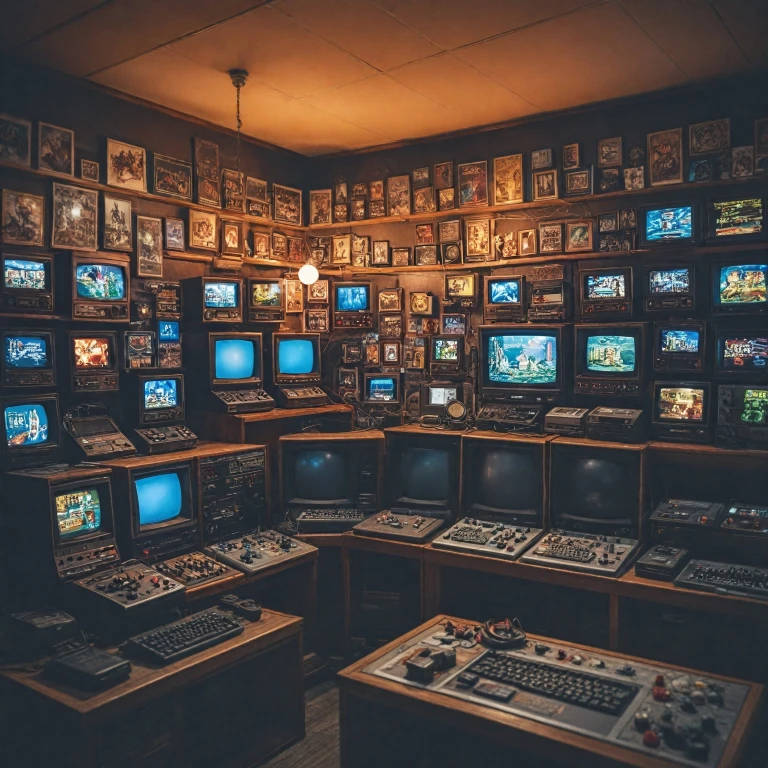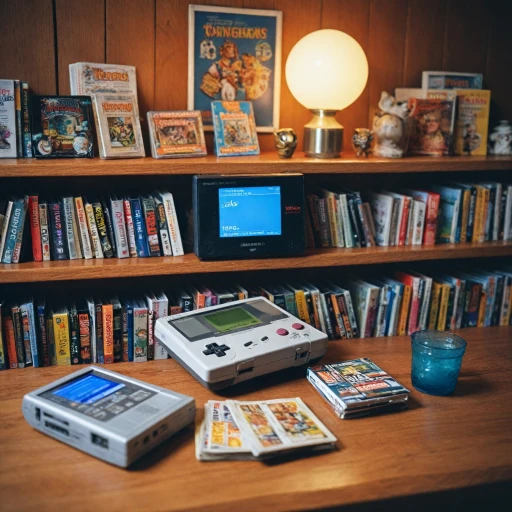
Understanding Video Game Emulators
What Are Emulators?
Video game emulators are fascinating pieces of software that allow gamers to experience games from classic consoles on modern hardware. Essentially, they mimic the hardware of traditional console systems, enabling gaming enthusiasts to play nostalgic titles from consoles like Super Nintendo, Game Boy, or even lesser-known niche systems. This emulation opens up a world of possibilities for retro gaming aficionados and provides accessibility to games that were previously confined to outdated or unavailable hardware.How Do Emulators Work?
Emulators work by creating a virtual environment on your current device—be it a computer, handheld, or even a phone—that replicates the functionality of the original console. This environment allows you to run ROMs, which are essentially the files or copies of the original game cartridges or discs. Whether through the graphical prowess of a gaming PC or the portable convenience of a handheld game device, emulators bring the classic gaming experience to life at the touch of a button.Diverse Platforms for Emulation
The appeal of emulation lies in its versatility. Whether you prefer the high-resolution display of a computer monitor or the portability of a handheld device, emulation offers an array of platforms to choose from. Devices like the Kinhank handheld or the more sophisticated Super Console Pro provide ready-made solutions that plug play into any modern television, often at a regular price that is accessible for many.For those interested in exploring more about specific systems and their unique emulation features, including some of the legacy consoles like the Saturn Console, which offers a unique glimpse into the past, you can learn more through resources like this relevant article.
The Appeal of Emulators
A significant draw of using an emulator is the ability to play a broad spectrum of retro games that may be hard to find or expensive to collect physically. It offers an affordable gateway for gamers wanting to revisit their favorite titles from the past or discover classics they missed out on originally.Emulators provide the flexibility to enjoy a library of games from multiple consoles on a single device, often enhanced with features like save states and improved graphics, which weren’t available on the original hardware. Whether you’re a Nintendo fan looking to relive the magic of its early days or a curious newcomer interested in exploring a piece of gaming history, the world of video game emulation is a vast and enticing playground.
The Legal Landscape of Emulation
The Complex Legal Terrain of Emulation
Navigating the legal landscape of video game emulation can be quite complex. As players dive into the world of retro gaming, it's essential to distinguish between legal and illegal usage of emulators and ROMs. Emulation itself is generally legal, as it involves creating software that mimics the workings of a video game console, allowing enthusiasts to play classic games on modern hardware. However, the legality often comes into question when dealing with game ROMs, which are the digital versions of these games. The legality of acquiring and using ROMs depends on several factors:- Copyright Concerns: Many game developers, especially those from well-established companies like Nintendo, strictly enforce their copyrights. Distributing or downloading ROMs still protected under copyright without permission can infringe on the game creators' rights.
- Personal Backups: Using emulators to play games that users legally own is generally considered acceptable. For instance, if you own a physical cartridge of a game, creating a digital backup for personal use aligns more closely with the law.
- Abandonware: Some older games that are no longer sold or marketed are often considered abandonware. Generally speaking, these can sometimes skirt legal issues, but this status does not officially legalize distribution.
Popular Emulators and Their Features
Exploring Popular Emulators for Today's Gamers
When it comes to preserving and playing classic games in today's digital age, emulators play a crucial role by offering a plug and play option for gaming enthusiasts. These software applications mimic the functions of game consoles, allowing you to play cherished video games on modern devices. Here, we'll delve into a few popular emulators that have captured the interest of retro gaming fans. The Dolphin Emulator stands out for its ability to emulate Nintendo GameCube and Wii games. Renowned for its compatibility and high-quality graphics, Dolphin allows users to experience their favorite titles with enhanced resolutions, providing a fresh look at beloved classics. Its frequent updates and wide range of settings ensure a seamless gaming experience. Another notable mention is RetroArch, which acts as a front-end for many different emulators known as "cores." This versatile emulator covers a broad array of systems, including the Game Boy, NES, and Super Nintendo, to name a few, making it a favorite among retro gaming aficionados. Its open-source nature and customizable shader options make it a go-to for optimizing classic game visuals. For those keen on emulating PlayStation games, the PCSX2 emulator offers an outstanding platform for playing PlayStation 2 classics. While it requires a bit more technical knowledge to configure, the results often include superior graphics adjustments and a fulfilling experience that rivals hardware-based gameplay. Meanwhile, NESbox provides a convenient browser-based gaming experience. It supports a library of classic NES, SNES, and Sega Genesis games without needing downloads, making it accessible for on-the-fly retro gaming. A contender in the handheld console realm, the Kinhank Super Console X has gained traction as a multi-platform retro emulator console. It supports a slew of retro gaming titles and systems, providing a nostalgic experience for players seeking to relive moments from various game consoles. To enrich your exploration of retro handheld game consoles, you can read more in our detailed analysis. Whether you're drawn to the complexities of setting up emulators or the simplicity of emulator consoles, these tools offer an array of opportunities to dive back into the legendary worlds of classic games.Benefits of Using Emulators
Advantages of Emulating Video Games
When it comes to revisiting classic gaming experiences, video game emulators stand out as a remarkable tool. These software solutions offer a treasure trove of benefits that cater to both nostalgic gamers and tech enthusiasts alike.- Access to Retro Libraries: Emulators open the door to a vast array of retro game libraries. From iconic Nintendo classics to beloved titles on the Game Boy, you can relive the magic of games across numerous platforms without needing the original hardware.
- Enhanced Playability: Emulation often enhances games with improved graphics and smoother performance. Modern emulator options come with upgrades that optimize gameplay, making retro titles more engaging on today's advanced displays.
- Cost-Effective Gaming: Owning an extensive collection of classic game consoles can be costly, especially when factoring in the regular price of vintage hardware and games. Emulators provide a budget-friendly alternative by allowing you to play these games on a single device, eliminating the need for multiple consoles.
- Portable and Convenient: With options like handheld emulators and plug-and-play devices, gaming becomes portable and convenient. Devices like Kinhank Super Console and other compact emulator consoles bring retro gaming on-the-go, providing countless hours of entertainment.
- Customization and Features: Most emulators offer customizable settings, including save states, cheats, and controller support for personalized gaming experiences. Such features elevate the gameplay, providing users with a tailored adventure every time they play.
Challenges and Limitations
Navigating the Constraints of Video Game Emulation
While the concept of using emulators to play classic games on modern hardware is enticing, there are inherent challenges and limitations that users need to acknowledge. Emulation, despite its vast offerings, isn't without its hurdles, and understanding these can help manage expectations.
The first obstacle encountered in video game emulation is the compatibility issue. Not every game will run smoothly on an emulator. This is particularly true for more complex games that were originally developed for advanced game consoles. Compatibility lists vary significantly between different emulators, and you might find some games, like those originally on the Nintendo Switch or Game Boy, have performance issues.
Another concern is the accuracy of emulation. Emulating the hardware of classic consoles with precision is challenging, and not all emulators achieve the desired accuracy. This can lead to graphical glitches, sound distortions, or even game-breaking bugs. For games like the ones on super consoles or handheld gaming devices, this can dampen the nostalgia factor.
Moreover, emulators often demand high system resources. While some retro or handheld games might run easily, the hardware requirements tend to increase when emulating more modern consoles. High-end PC hardware could be necessary to emulate the complex architectures of newer game consoles effectively.
Users might also encounter legal boundaries. As previously explored, while emulation itself is legal, the gaming ROMs you load into these emulators can be a grey area depending on the copyright laws of specific games and your region. Make sure you're aware of the legal implications to avoid any potential issues.
Furthermore, setting up and configuring an emulator can be time-consuming and not as straightforward as expected. From BIOS files to controller configurations, users need to be ready for a potentially detailed setup process to get everything working properly.
Despite these limitations, emulators continue to be a valuable tool for accessing video game history – allowing gamers to relive memories of nintendo classics or explore kinhank super console offerings. As technology progresses, we can hope for even more refined solutions in the realm of console emulators, which will further extend the charm of retro gaming into the future. Stay informed, be patient, and dive into the retro gaming universe with the right expectations.













